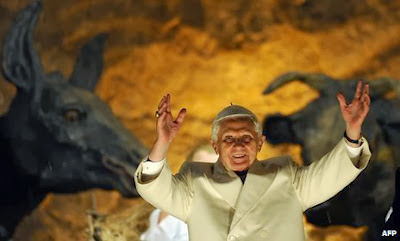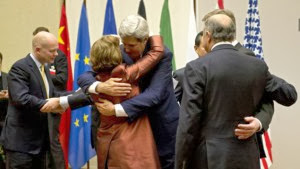On the morning Joanne Nodding met the man who raped her, she was struck by something she never expected. “He looked terrified. He was like a scared little boy. He was afraid of what I was going to say,’ she says. “But I felt calm. If I had been there just to scream at him, the meeting would never have happened.”
They sat face to face, separated by a low table, in an anonymous room. She thanked him for meeting her and told him how she had felt during the assault, how he had affected the lives of her immediate family and how she thought she was going to be killed during the attack.
“I needed to tell him in my own words how I felt, and I wanted him to understand the enormity of his crime. When I told him I had thought he was going to murder me, he burst into tears. Literally. I didn’t expect him to do that,” she says. “I wasn’t expecting him to say ‘sorry’, but he did. It seemed a genuine ‘sorry’. I also wanted him to move on from the rape, as I had begun to do.”
The meeting between the two took place five years after the rape had occurred. Her attacker had been sentenced to life after a high-profile court case, following a brutal assault in a public building.
But for Joanne, who is now 41 and is a primary school teacher based in Lincolnshire, northeast England, the court process had offered little respite from being a victim.
She still felt robbed of self-confidence and her life was paralysed by fear. The judge’s comments at the end of case only reinforced how helpless she felt.
He said the attacker had “ruined her life” and that she would be a victim forever. Eventually, she realised the only way to stop her life being defined by the rape was to confront her rapist.
The meeting was organised as part of a “restorative justice” programme, aimed at allowing victims to speak with the person responsible for a crime. “Anger had eaten me up for so long. I could have stayed a victim forever, but I didn’t want to. I wanted to be a survivor. It was like, either let the anger eat you up or try to make a difference to your life – and his. I didn’t want his life to be destroyed either,” she says “I walked into that room a victim and I left a survivor. It gave me my life back.”
Most modern justice systems focus on a crime, a lawbreaker and a punishment. But restorative justice is a different way of resolving conflict: it considers harm done and strives for agreement from all concerned – the victims, the offender and the community – about making amends.
“This is the way forward,” says Fr Peter McVerry, a social-justice campaigner and an advocate for this approach. “It’s a different way of resolving conflict. What is important is that it seeks to bring together those involved in a conflict to try to resolve a problem in a way that’s acceptable to all, and to restore broken relationships.”
At a time when our prisons are struggling to cope with problems such as violence, overcrowding and recidivism, restorative justice is proving to be a quiet success story of the justice system.
Research into projects which have been operating in the Dublin area and in Tipperary show highly encouraging signs of how it has the potential to reduce the level of reoffending, and to save the State significant sums in the process.
A restorative justice programme costs between €1,500 and €3,500; detaining a prisoner costs about €97,000 a year.
It is also highly effective in reducing recidivism. Research into restorative justice projects here indicates that as many as 80 per cent of participants had not reoffended within a two-year period.
Nodding feels so strongly about the power of restorative justice that she visited Ireland last week to share her experiences. She is also helping victims of serious crimes here who are considering using it as a way of coming to terms with what happened to them.
Looking back, she is still surprised by how life-changing the process was, and how it offers both victims and offenders a way out.
“During the meeting, I looked at him and said, ‘What I’m about to say to you, a lot of people will find difficult to understand. I forgive you for what you've done to me. And if you haven’t forgiven yourself, I want you to because I want you to go on and have a successful life.’ ”
Nodding thought the meeting had taken 10 minutes. In fact, she was later told by facilitators, it had lasted an hour and a half. “It was as if a door had been left open, and now it was closed. My hurt and anger were gone.”
"For if you forgive others for their transgressions, your heavenly Father will also forgive you. Matt 6:14
There is more on this story at: http://www.irishtimes.com/news/crime-and-law/i-was-a-rape-victim-now-i-m-a-survivor-1.1612128?page=1
They sat face to face, separated by a low table, in an anonymous room. She thanked him for meeting her and told him how she had felt during the assault, how he had affected the lives of her immediate family and how she thought she was going to be killed during the attack.
“I needed to tell him in my own words how I felt, and I wanted him to understand the enormity of his crime. When I told him I had thought he was going to murder me, he burst into tears. Literally. I didn’t expect him to do that,” she says. “I wasn’t expecting him to say ‘sorry’, but he did. It seemed a genuine ‘sorry’. I also wanted him to move on from the rape, as I had begun to do.”
The meeting between the two took place five years after the rape had occurred. Her attacker had been sentenced to life after a high-profile court case, following a brutal assault in a public building.
But for Joanne, who is now 41 and is a primary school teacher based in Lincolnshire, northeast England, the court process had offered little respite from being a victim.
 |
| Joanne Nodding forgave her rapist |
He said the attacker had “ruined her life” and that she would be a victim forever. Eventually, she realised the only way to stop her life being defined by the rape was to confront her rapist.
The meeting was organised as part of a “restorative justice” programme, aimed at allowing victims to speak with the person responsible for a crime. “Anger had eaten me up for so long. I could have stayed a victim forever, but I didn’t want to. I wanted to be a survivor. It was like, either let the anger eat you up or try to make a difference to your life – and his. I didn’t want his life to be destroyed either,” she says “I walked into that room a victim and I left a survivor. It gave me my life back.”
Most modern justice systems focus on a crime, a lawbreaker and a punishment. But restorative justice is a different way of resolving conflict: it considers harm done and strives for agreement from all concerned – the victims, the offender and the community – about making amends.
“This is the way forward,” says Fr Peter McVerry, a social-justice campaigner and an advocate for this approach. “It’s a different way of resolving conflict. What is important is that it seeks to bring together those involved in a conflict to try to resolve a problem in a way that’s acceptable to all, and to restore broken relationships.”
At a time when our prisons are struggling to cope with problems such as violence, overcrowding and recidivism, restorative justice is proving to be a quiet success story of the justice system.
Research into projects which have been operating in the Dublin area and in Tipperary show highly encouraging signs of how it has the potential to reduce the level of reoffending, and to save the State significant sums in the process.
A restorative justice programme costs between €1,500 and €3,500; detaining a prisoner costs about €97,000 a year.
It is also highly effective in reducing recidivism. Research into restorative justice projects here indicates that as many as 80 per cent of participants had not reoffended within a two-year period.
Nodding feels so strongly about the power of restorative justice that she visited Ireland last week to share her experiences. She is also helping victims of serious crimes here who are considering using it as a way of coming to terms with what happened to them.
Looking back, she is still surprised by how life-changing the process was, and how it offers both victims and offenders a way out.
“During the meeting, I looked at him and said, ‘What I’m about to say to you, a lot of people will find difficult to understand. I forgive you for what you've done to me. And if you haven’t forgiven yourself, I want you to because I want you to go on and have a successful life.’ ”
Nodding thought the meeting had taken 10 minutes. In fact, she was later told by facilitators, it had lasted an hour and a half. “It was as if a door had been left open, and now it was closed. My hurt and anger were gone.”
"For if you forgive others for their transgressions, your heavenly Father will also forgive you. Matt 6:14
There is more on this story at: http://www.irishtimes.com/news/crime-and-law/i-was-a-rape-victim-now-i-m-a-survivor-1.1612128?page=1























